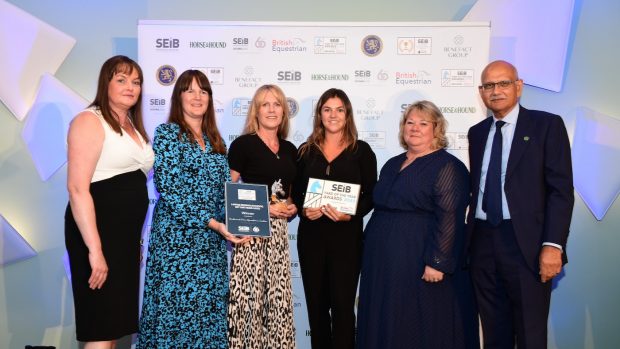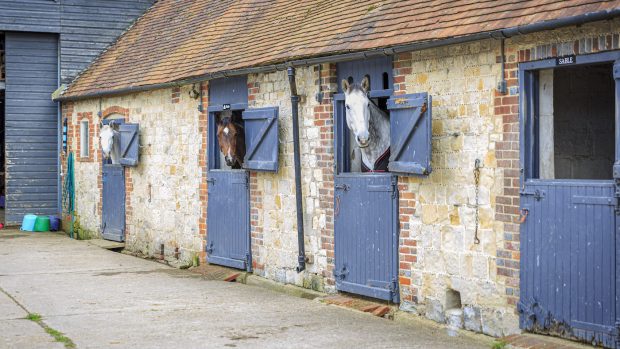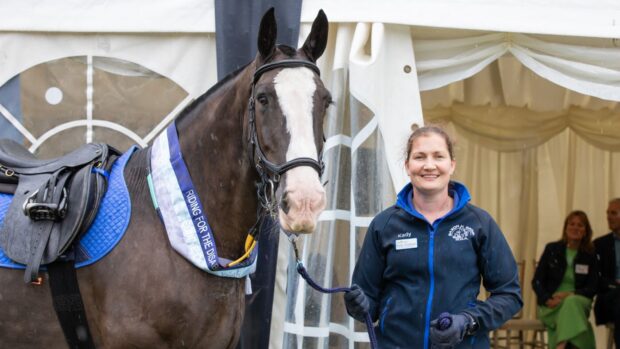The equestrian world is full of unsung equestrian heroes, working with equine charities, teaching, training, breaking and schooling and generally devoting their lives to horses. Sara Walker talks to Cheshire-based Pam Rigby BHSII (pictured), who looks back at her 50 years working as a BHS instructor and running riding schools
“I came from a non-horsey family, and while my parents were happy for me to ride, they didn’t quite understand why I wanted to!” says Pam. “I did later find out that my grandad worked in Argentina as a gaucho as a young man, which must have been quite unusual for the time. As a child, I went and helped friends with their ponies, but I didn’t get my own horse until I was 19.
“I originally became a police cadet, but decided it wasn’t for me and took my first BHS exams instead in the early 1970s. At the age of 19, I went to work for a man called Mr. Booth, who was running a riding school in Timperley, Cheshire. When he decided to move in 1972, I moved with him and became a partner in his new venture, Mobberley Riding School. Mobberley became the largest and best-known riding school in the area, and I was there for 33 years — I must have taught thousands of children to ride, probably most of the county!
In 1984, the Mid-Cheshire Riding for the Disabled group were looking for a new venue, and teamed up with Pam — a relationship which continues to this day. In 2005 Mobberley Riding School was passed to new owners, and Pam took advantage of her new free time to write a book aimed at first-time horse owners, ‘So you want to own a horse?’ She also became the Para Equestrian rep for the north west, working to support people with disabilities who wanted to compete in dressage and jumping.
“As a result of my Para work, I had the most fantastic opportunity — I went to Hong Kong to steward at the Beijing Olympics,” she says. “It was an experience I’ll always remember.” In 2013, Pam was awarded an MBE for her work with people with disabilities.
Pam’s free time didn’t last — soon after returning from Hong Kong, she bought New Barn Farm (https://www.newbarnlivery.co.uk/) in Chelford, Cheshire.
“At the time, I called it my retirement project,” she says, laughing. “I wanted the RDA to be guaranteed a base, and I wanted to offer holiday livery as that’s not too much of a time commitment. Of course, it all snowballed and now we run events, courses, clinics and offer lessons as well as the RDA work.
“I’d definitely still encourage young people to go into the equestrian industry. These days, there are a lot more opportunities if you don’t necessarily want to go down the coaching route — you can do an equine studies degree, or work in nutrition, research or management. If you want to have a career with horses, I think you’ve got to be gregarious, as it can be quite a public life — remember you’ve got to get along with the people as well as the horses!
“Probably my worst moment professionally was when Mr. Booth died in the 1988 and I thought I wouldn’t be able to carry on as I’d have to run the business single-handedly. In the end, though, I just got on with it. The other horrible thing is having to put well-loved horses and ponies down — that never gets easier. It’s also difficult when you’re ill, and there’s no-one to send a sick note to!
“Of the horses I’ve known over the years, the ones that still stand out for me are Playboy, a little piebald pony who’d been a mounted games pony, and my own horse Pallo. Playboy was perfect for teaching on, as he could canter calmly and smoothly, Pallo was a handsome palomino, very lively as a jumper and I could take him anywhere. We had some great times.
Continued below…
You might also be interested in:

Subscribe to Horse & Hound magazine today – and enjoy unlimited website access all year round
“To me, one of the things that’s changed for today’s riders is that so many people are only learning to ride in an arena. There are so many more arenas available now, as the sheer volume of traffic can make hacking out precarious. When we first opened Mobberley, we didn’t even have an arena! Now, you’re getting riders who have never ridden a horse in an open space, which is a shame, as I think that’s only one part of horsemanship.
“When I look back on my career, the thing I’ve enjoyed most is teaching people who are still involved with the industry in some way years later. I think if you start a young rider off safely and properly, that gives them the foundation to carry on. I love seeing former pupils pop up at competitions or just bringing their own horses to clinics and know that they’re still riding all those years later — it shows that we got it right!”
For all the latest equestrian news and reports, don’t miss Horse & Hound magazine, out every Thursday





